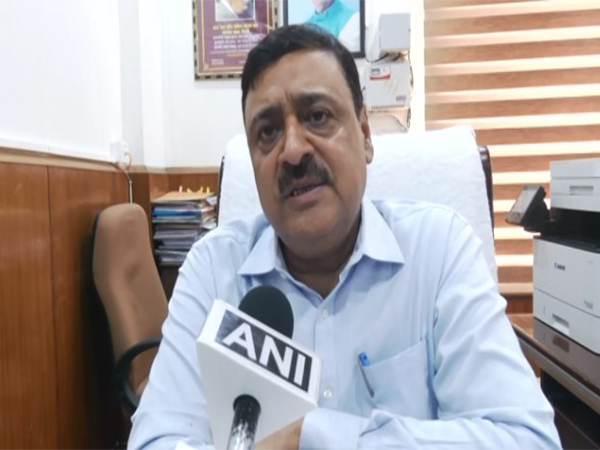AAP opposes simultaneous polls, says "One nation, one election will damage idea of parliamentary democracy"
Jan 20, 2024

New Delhi [India], January 20 : The Aam Aadmi Party (AAP) has opposed the concept of 'one nation, one election', saying that the simultaneous polls will damage the idea of parliamentary democracy as it is unable to deal with hung legislatures and will actively encourage the evils of anti-defection and open buying and selling of MLAs and MPs.
In a letter written to Secretary High-Level Committee, One Nation, One Election Niten Chandra on January 18, AAP National Secretary Pankaj Gupta said that with the implementation of the ONOE, the party ruling at the Union level gains an unfair advantage over regional parties and other parties contesting the centre-ruling party in the states.
"Aam Aadmi Party strongly opposes the idea of 'One Nation, One Election'. 'One Nation, One Election' will damage the idea of parliamentary democracy, the basic structure of the Constitution and the federal polity of the country. 'One Nation, One Election' is unable to deal with hung legislatures and will actively encourage the evil of anti-defection and open buying and selling of MLAs and MPs," the AAP Secretary said.
The AAP has also said that the tenets of the constitution and democracy cannot be sacrificed for narrow financial gains and administrative convenience.
"The cost sought to be saved by simultaneous polls is a mere 0.1 per cent of the Government of India's annual budget," the AAP added.
He further said that conducting polls simultaneously will detrimentally impact the Indian multi-party system, where several parties have emerged to represent the voices of those who were erstwhile marginalised in mainstream politics.
"The Aam Aadmi Party believes that ONOE poses a threat to the national agenda and, in turn, the party ruling at the Union level gains an unfair advantage over regional parties and other parties contesting the centre-ruling party in the states. It will detrimentally impact the Indian multi-party system, where several parties have stemmed to represent the voices of those who were erstwhile marginalised in mainstream politics. While notable exceptions exist, evidence suggests that a very large number of voters tend to vote for the same party when elections to both the state Assembly and the Lok Sabha are held simultaneously or within a gap of six months," he said.
The letter further read, "Voters tend to vote for the same party in the Assembly election for which they had voted during the Lok Sabha election. This creates an unfair advantage for the national parties. While dominant regional parties will also benefit from this pattern, smaller regional parties will bear the brunt."
The Central government constituted a high-level committee, headed by former President Ram Nath Kovind, earlier last year to study the concept of simultaneous polls in our country.
The government had also written to six national parties and 33 state parties, asking for their suggestions on holding
simultaneous elections to the Lok Sabha, state assemblies and local bodies last year. Consultations have been held by the High-Level Committee on 'One Nation, One Election' constituted under the chairmanship of former President Ram Nath Kovind.
According to the Ministry of Law and Justice, as part of this consultation process, suggestions and considered views are solicited from citizens, political parties, eminent jurists like former Chief Justices of the Supreme Court and High Courts, constitutional experts, and former CECs among others.
As part of this consultation, on January 17, the Chairman of the HLC met Justice Munishwar Nath Bhandari, former Chief Justice of Madras High Court, in New Delhi.
Congress president Mallikarjun Kharge has also opposed the idea, saying that there is no place for the concept of simultaneous elections in a parliamentary system of government while sharing his views on the One Nation, One Election.
Kharge said that simultaneous elections go against the guarantees of federalism contained in the Constitution and the basic structure of the Constitution.
"On behalf of the Congress party and the people of the country, I humbly request the Chairman of the High-Level Committee not to allow his persona and the office of former President of India to be abused by the Union Government to subvert the constitution and parliamentary democracy in this country," he stated in his letter.
Kharge said that the holding of simultaneous elections would require the dissolution of several legislative assemblies which are still halfway, or less, through their terms and it would be a betrayal of the electorate in those states.

















